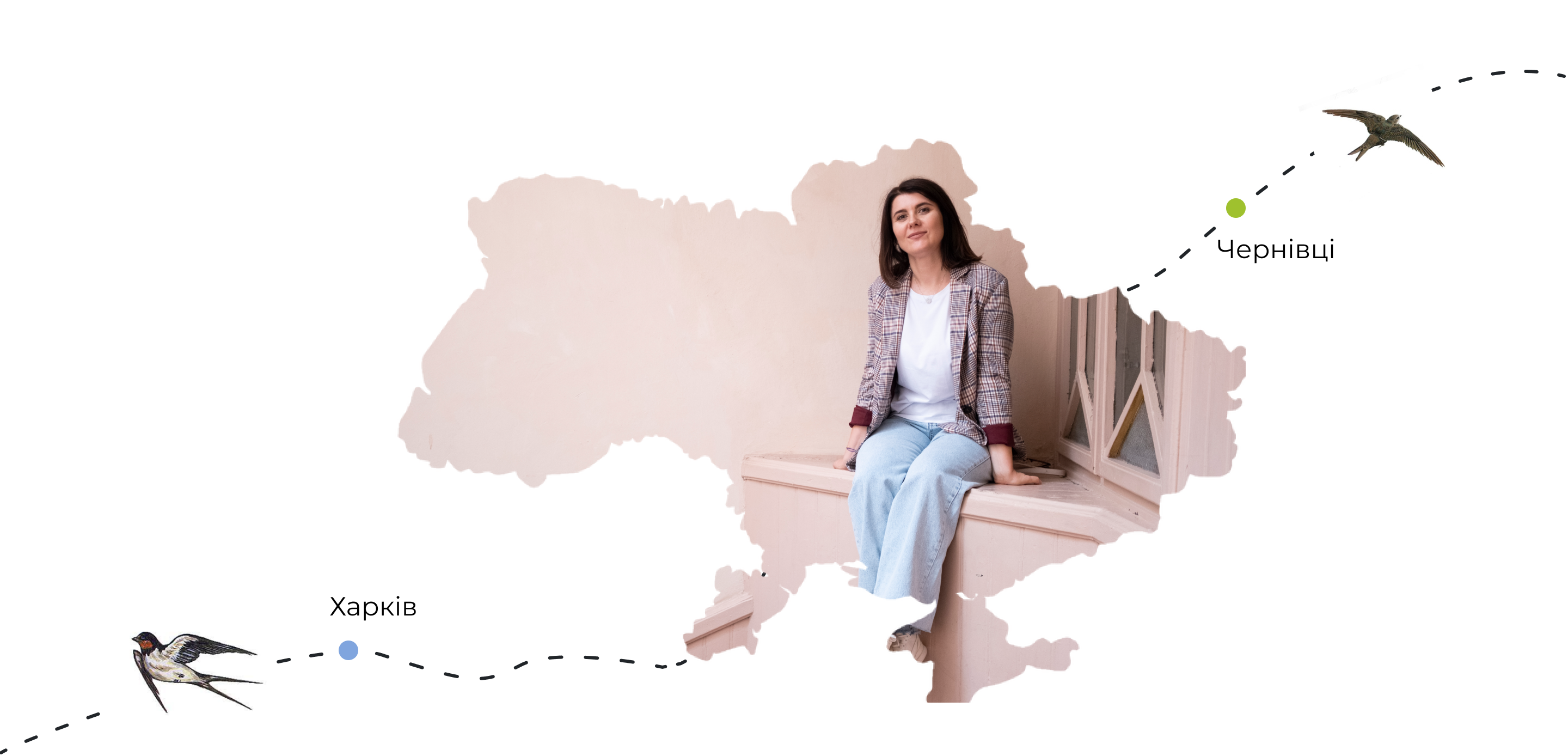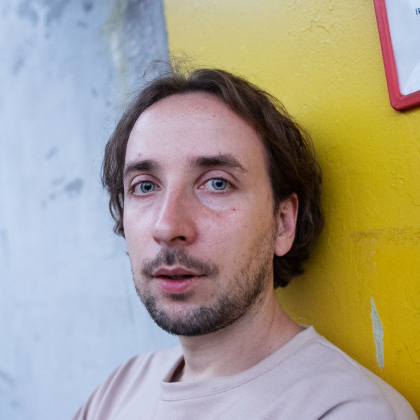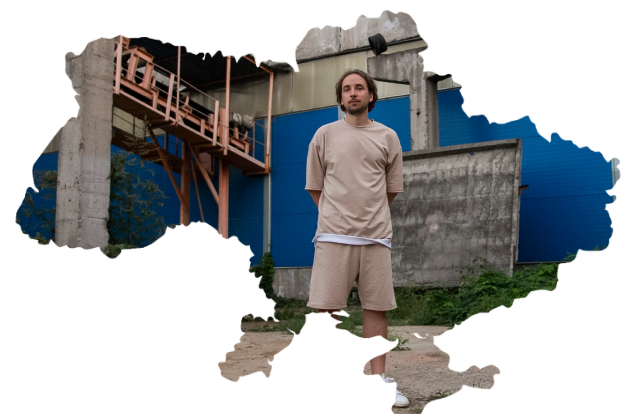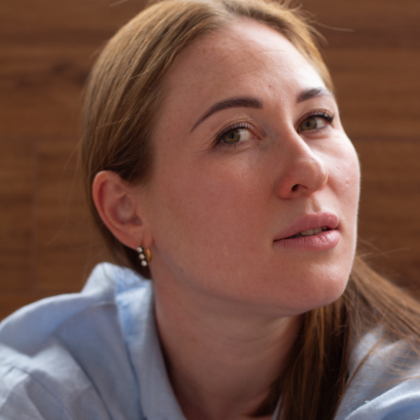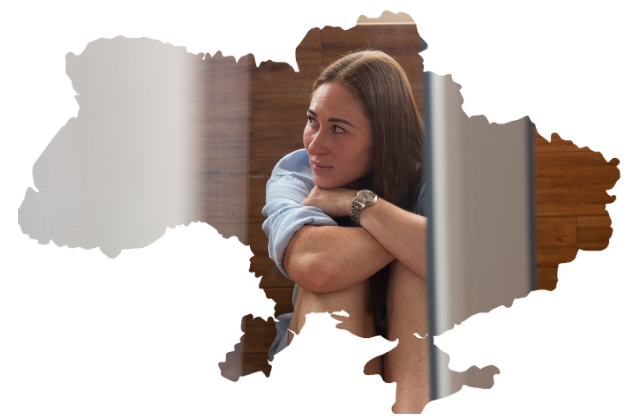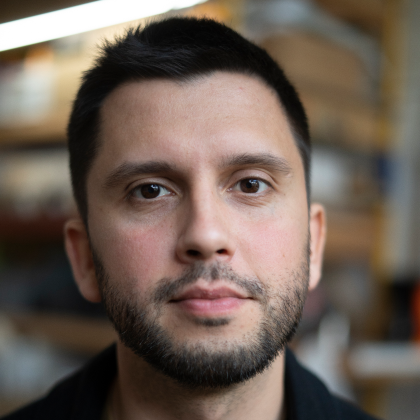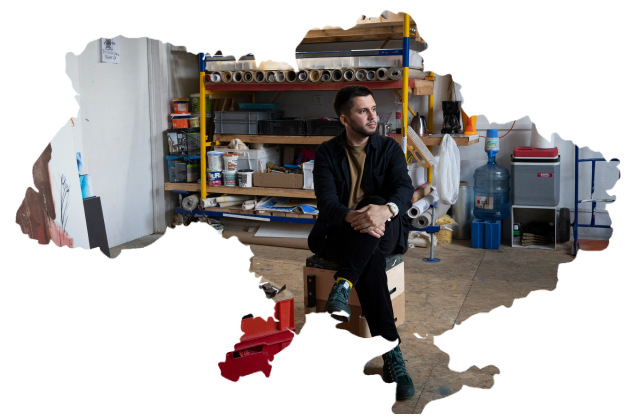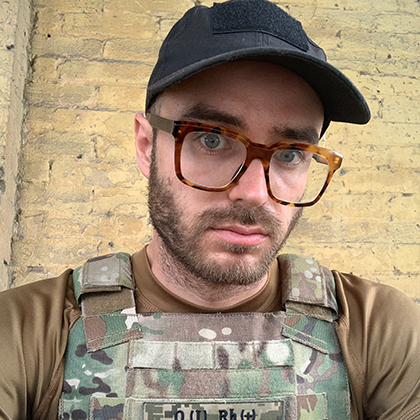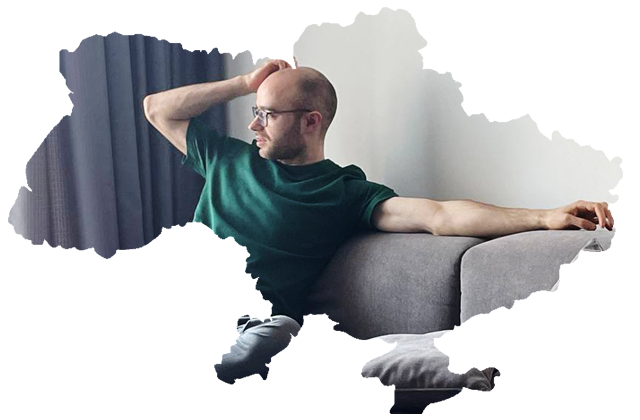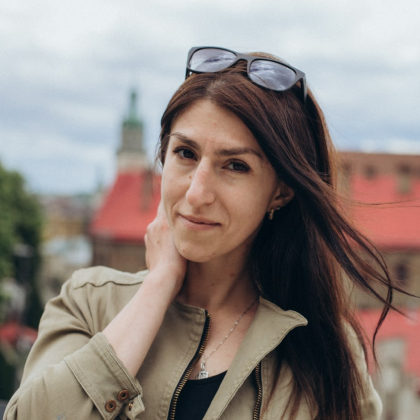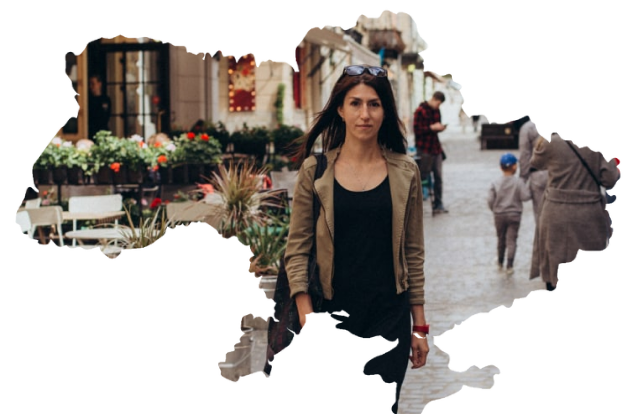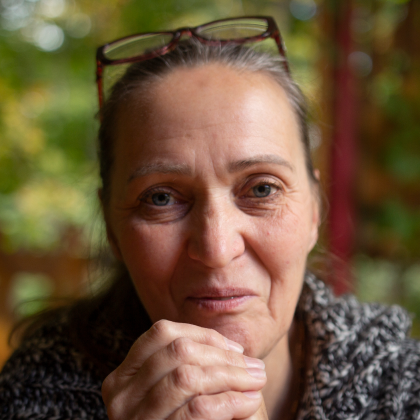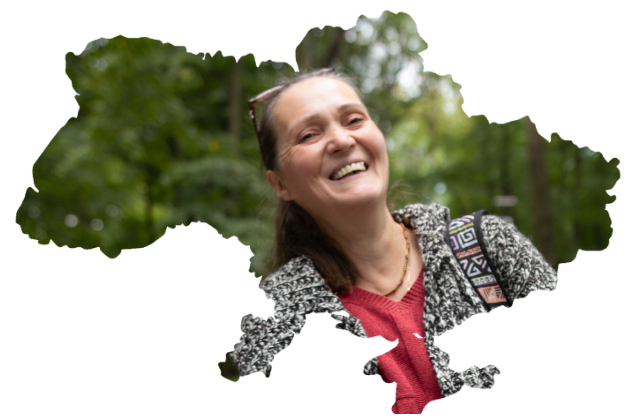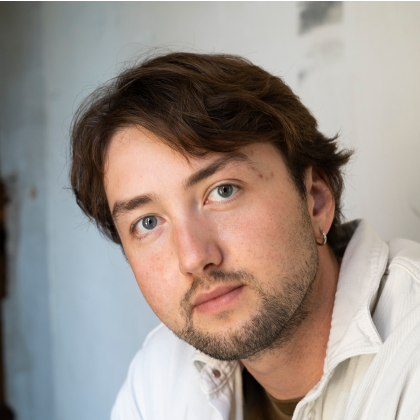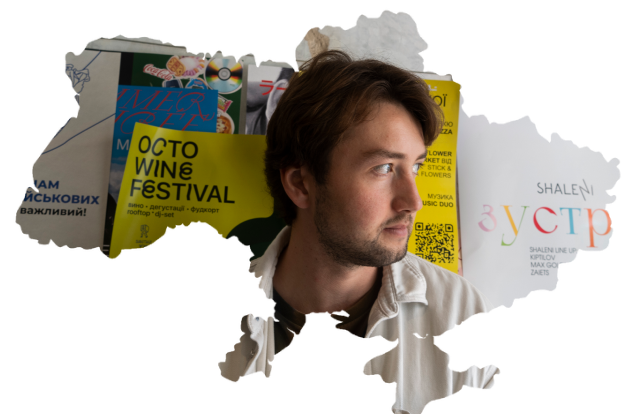Olga Maklyakova
Founder and director of the Start-Art Theatre Studio
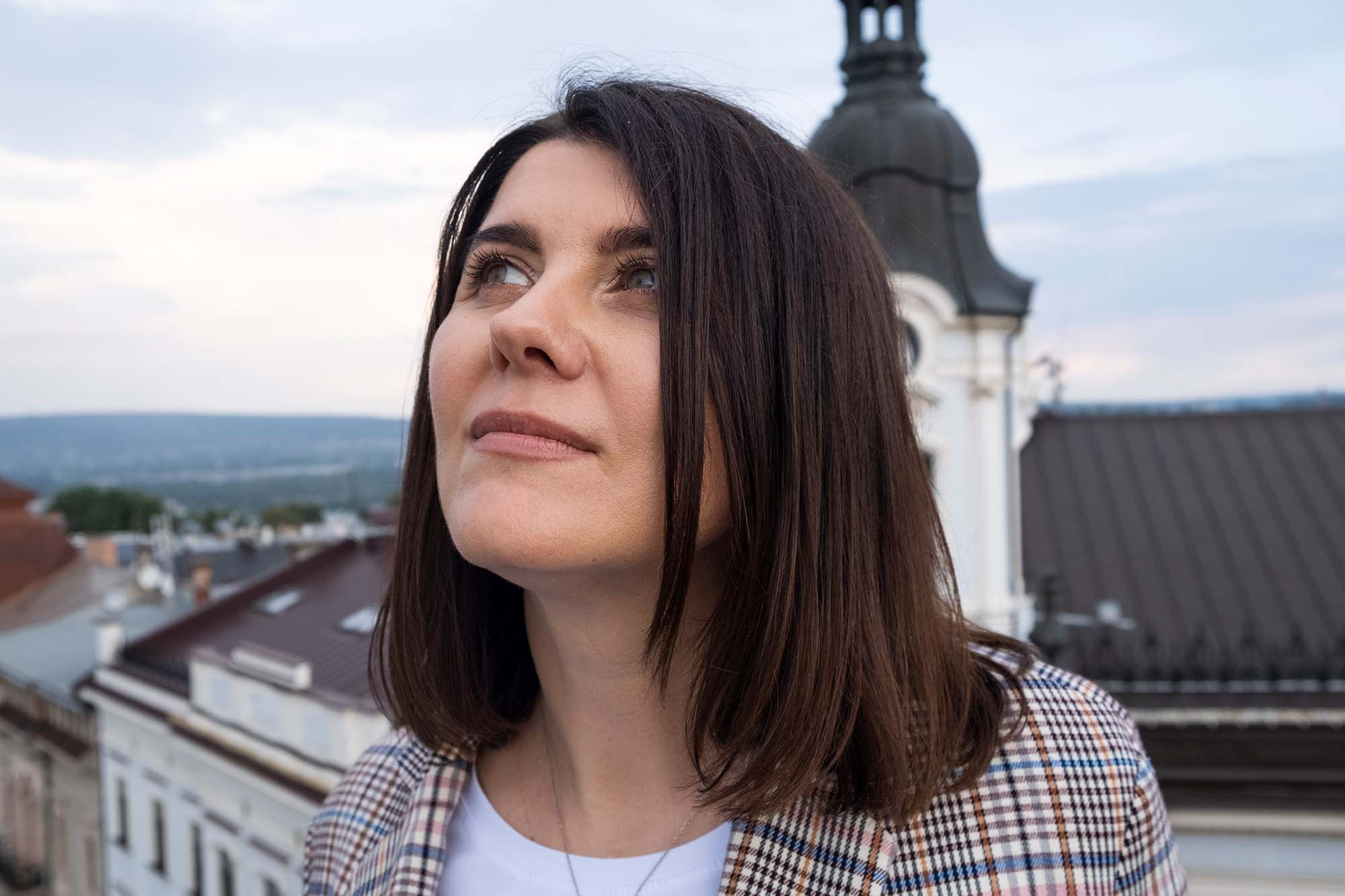
Kharkiv — Chernivtsi
I was born in the Luhansk Oblast in the village of Novopskov. My relatives are there now. They aren't going anywhere yet, hoping for the best. I moved to Kharkiv in 1993 to study at the Academy of Culture and to stay in the city forever.
Every year in February, we have a music and poetry evening in our children's theatrical studio. Older children and parents take part in it. This year it was special — there were poems and songs by contemporary authors only in Ukrainian. The night before, I had been actively preparing for the event, and after the event, I was busy taking the set and props apart, so I didn't have time to see anyone.
A friend from Kyiv called me: "Have you packed a suitcase?" "Why?" — I wondered. "Just in case," she said. The janitor at the Cultural Center confirmed that there might soon be a war. It was February 14, St. Valentine's Day. My little angels and I were congratulating everyone on Valentine's Day and then I heard that. I am not very active on social media, so I had no idea about the disturbing news that had swept our society.
For the next few days, everyone was talking about a possible war, but no one really believed in it. On Wednesday, February 23, we still had a rehearsal. The kids were joking that martial law had already been declared with an 8 p.m. curfew, so nobody would detain them after the classes.
But on February 24, around 5:30 a.m., I woke up to explosions. I started getting texts from the parents of children from the theatre, everyone was sharing whatever information they had. But it wasn't until my son called me, saying he was on his way to my place with his things, that I realized that I had to pack my suitcase and that the war had begun.
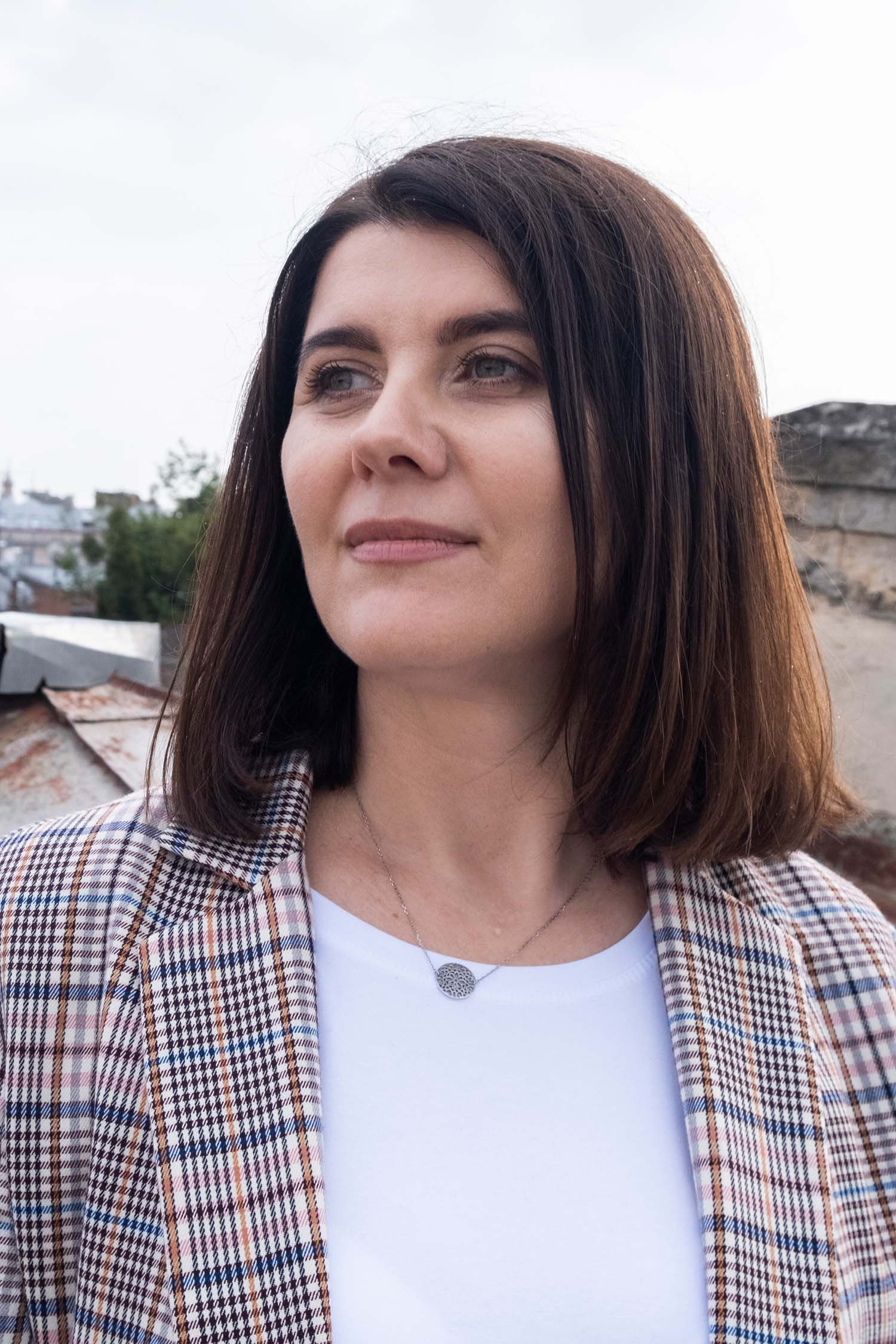
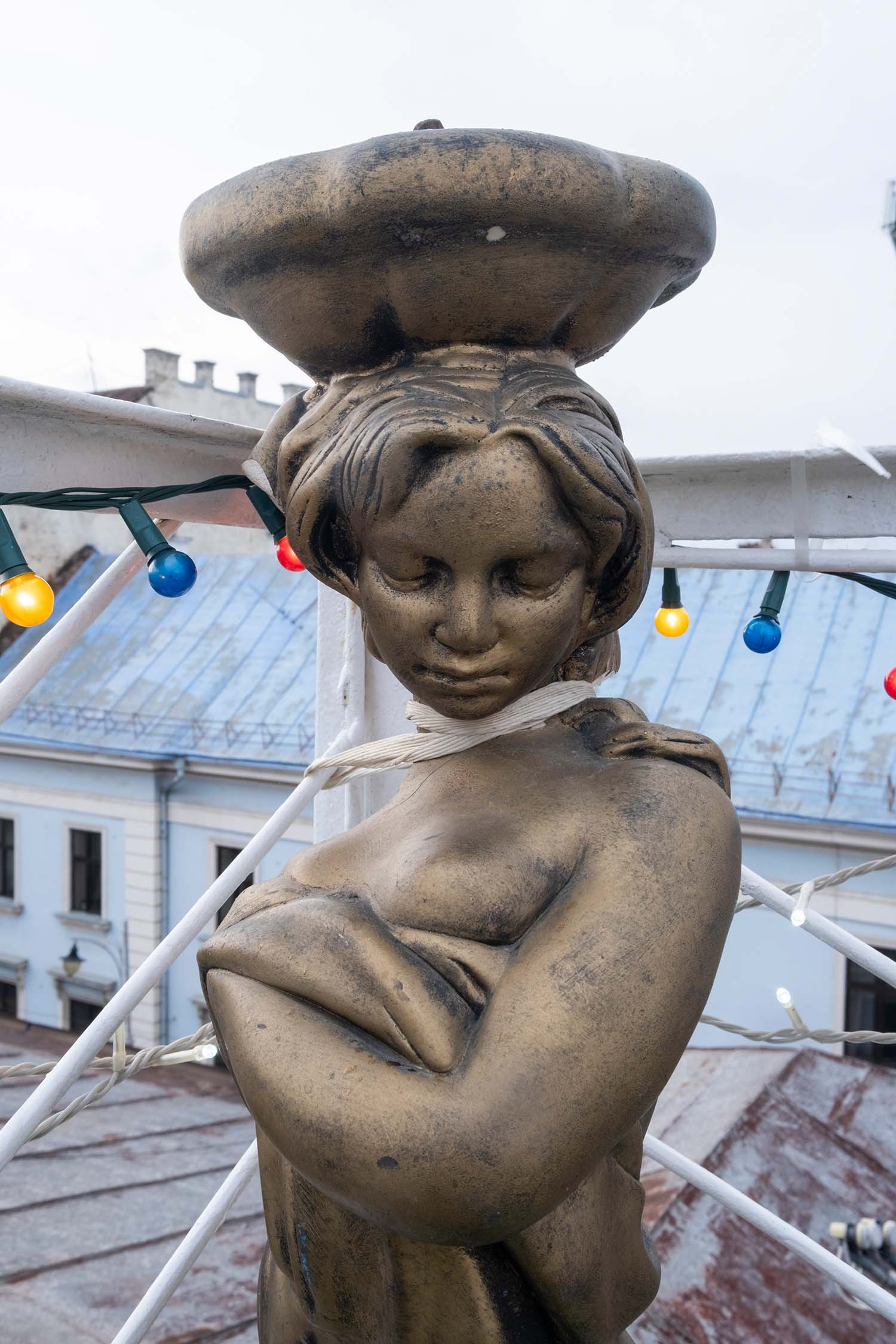
There was no siren on the first day, but we could hear explosions all the time. No one had any idea what was going on, so we just followed people into the subway. There we felt somewhat protected.
At first, everyone sat in carriages and slept that way for the first night. I met people from our building there, my neighbours, whom I had never crossed paths with in my life because I have a work schedule, different from everyone else's. The first few days I cried all the time, I felt deeply moved by everything that was going on around me: how the elderly people were helped, how the children were comforted, how food was shared. The dogs and cats felt everything just the same way as people did. Everyone clung to each other.
Then more and more people began to arrive. Many drove over from other districts. Only parents with children stayed in the wagons, the rest were asked to settle on the platform. It was cold, and every day I brought sleeping mats, blankets, and pillows from home. The stores nearby gradually ran empty. The only thing left at home was water.
On the first few days in the subway, I was surprised by the people's humanity, but after a week it saddened me a lot to see how people were becoming more and more aggressive. Among them, some deliberately provoked this tension. I even began to notice changes in myself, because this aggression was already in the air.
I no longer slept at night, and started watching everyone: who moved where, who talked to whom. I realized that I was becoming just as suspicious as everyone else. In my imagination, we had been there for at least a month, when in fact we had only been there for a week.
My cousins, who had recently built a house in the Kharkiv Oblast, texted me every day, "Why are you sitting there? Come stay with us!". So when I felt that negative change in myself, and when my son got sick, I got encouraged to take some decisive actions. So we started looking for a taxi, which was impossible to find at that time because everyone was trying to get to the railway station.
The driver who agreed to take us to the suburbs warned us that he had to pick up people from Saltivka first, so we had to wait. So we sat and waited for him as long as it took. In those days curfew began at 4 p.m., and the drive would take an hour and a half, but we got there twice as fast, half an hour
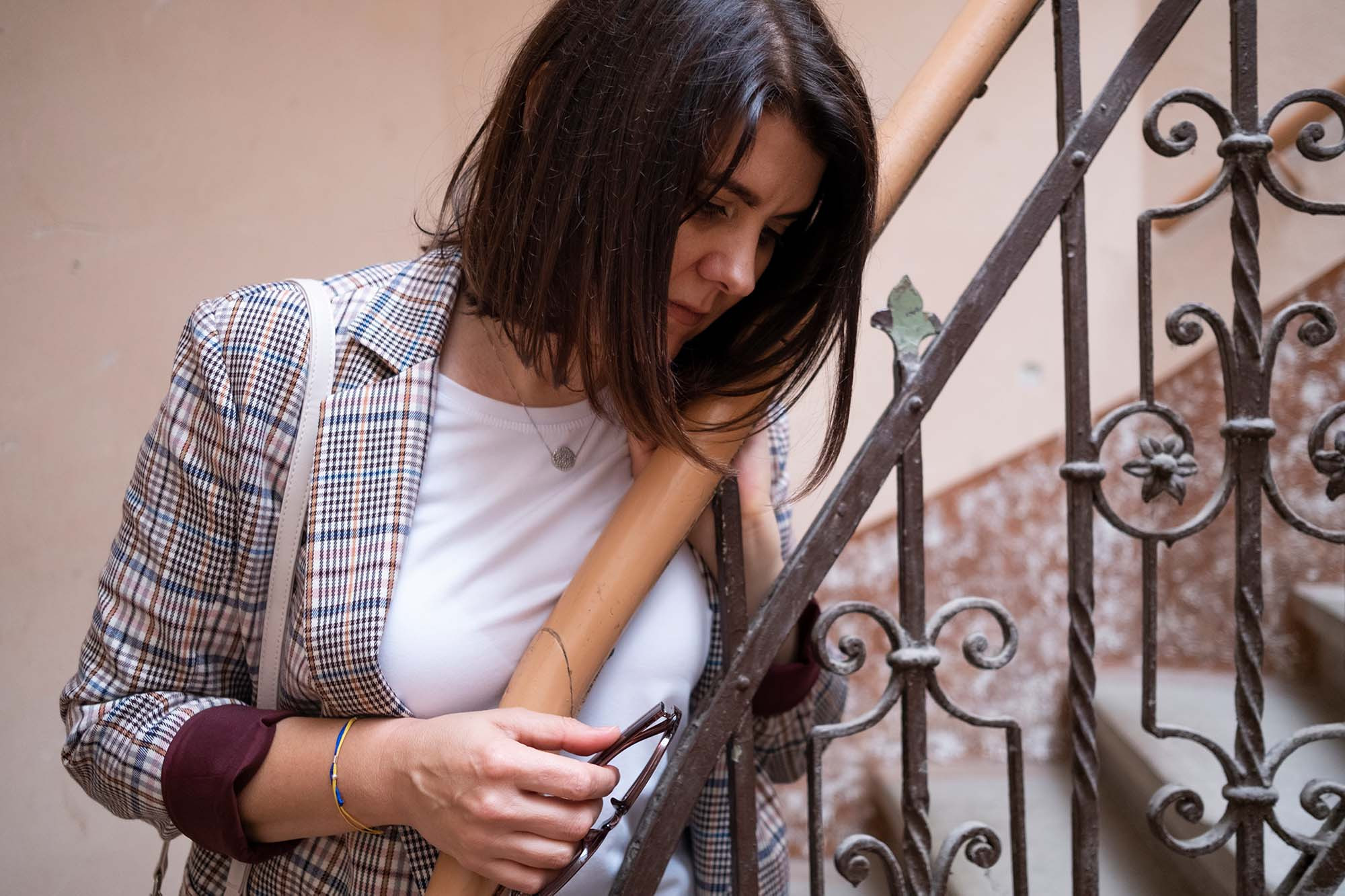
Our driver turned out to be surprisingly fearless. On that day, the city centre was bombed. "There's a fighter jet in the rearview mirror," he said to us. — If you hear any sound now, jump out of the car and get on the ground."
After hearing that phrase, I couldn't move anymore, I couldn't even breathe. I think I only started to breathe when we drove out of the city. But that was not all. When we got to the checkpoint from the city, everyone suddenly ran toward the ditch nearby the road. We knew something horrible was going on. Our driver didn't stop and said that the main thing was to get over the bridge. And he stepped on the gas. Only when we got to our destination, was I able to cry and talk.
We spent two or three days at the godparents' house in the Valkivsky region. The house was warm and cosy, and there were only close people, just six of us - in contrast to the cold subway, where thousands were hiding. However, we could not stay there long and decided to go further.
Then there was Poltava, Kremenchuk, and Khmelnitsky. But when we reached Chernivtsi, I said I couldn't run any further. Moreover, a friend from Kyiv was already there and insisted that we join her.
We immediately found a charming landlord, a saxophonist and former director of the Philharmonic Hall. Right away, I felt he was one of my own kin. He came over to us and said: "So where are my people here? What are my people doing?" That is, we had already become like family.
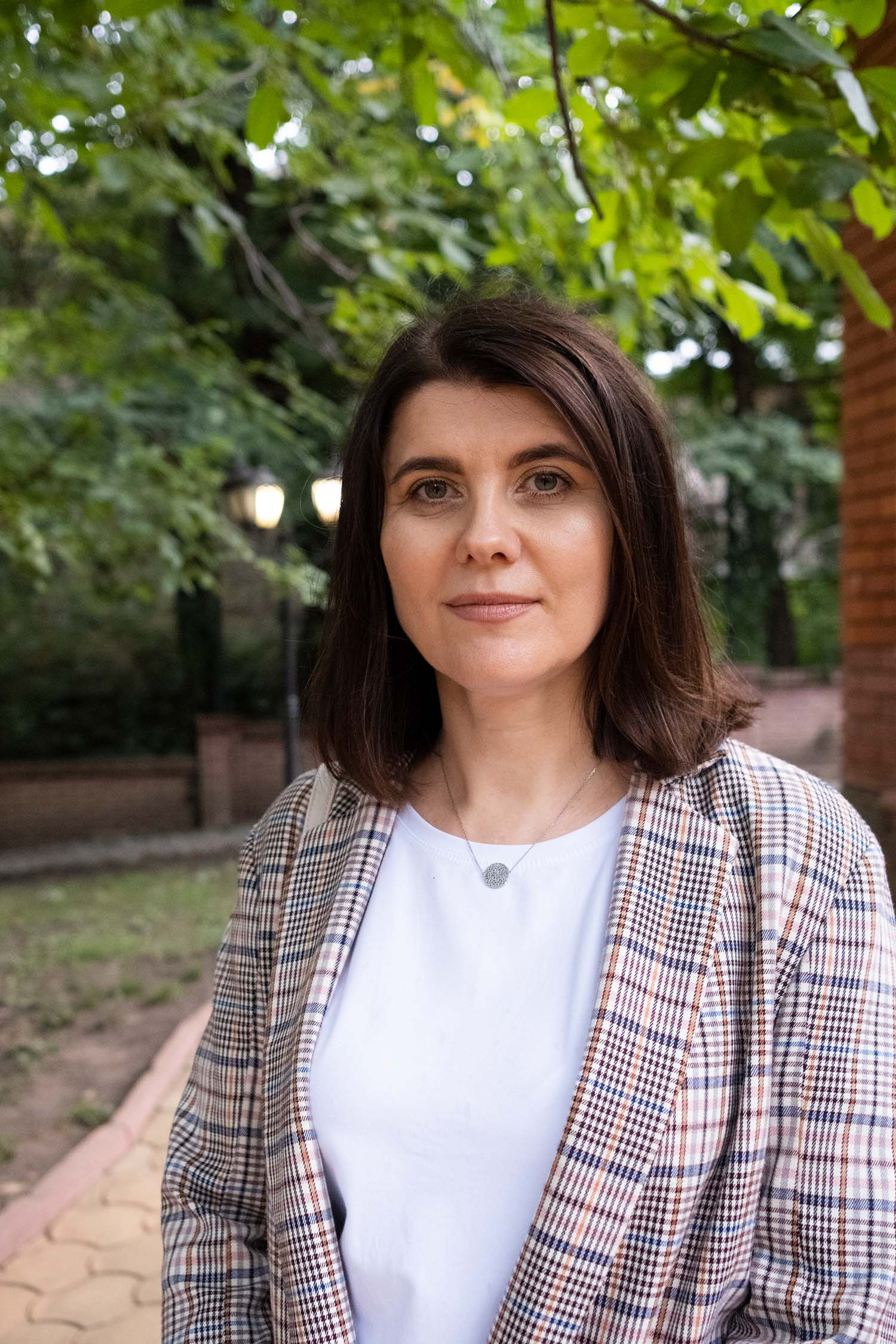
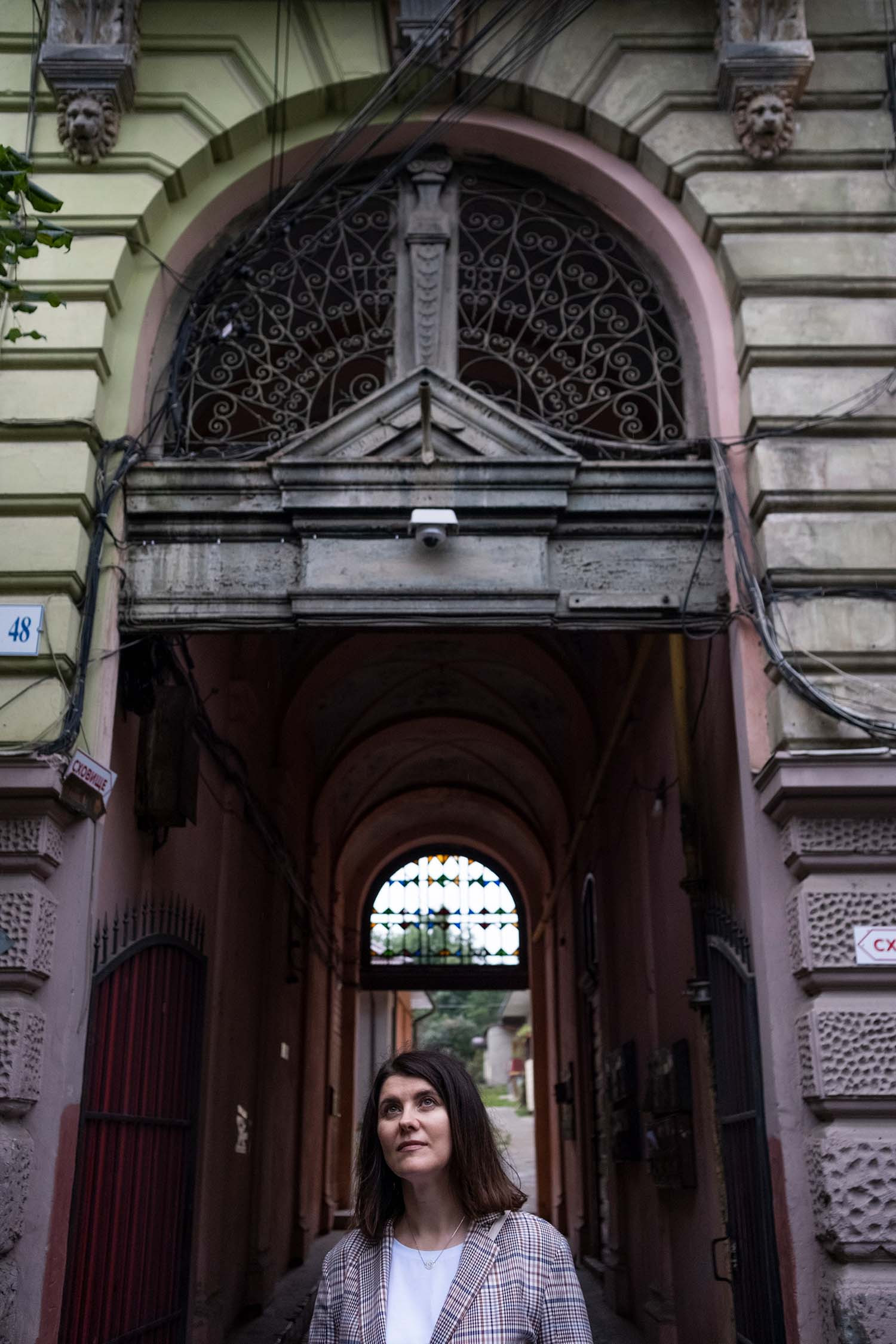
The first thing I could do (probably, I psychologically needed it) was to start repairing the building in which we were renting an apartment. An old Austrian building, with a cosy courtyard and a swallow nest on the ceiling. First, I plastered it, then primed and painted it. The neighbours thought I was an expert, but before that, I had only restored decorations. It was my gratitude to the building for sheltering us.
I went to Kharkiv recently and realized there that, unfortunately, I'm not ready to go back yet. As soon as I went down the subway stairs and got on the train, I immediately remembered the faces of those who sat, slept and lived in these stations in February. I looked at the grey ceilings without any ads, at the people's faces, and there was nothing there, only war…
So no, I don't plan to go home yet, because it hurts too much. The only thing you can do now is to volunteer and to help in any way you can. The rest would be unnecessary, too irrelevant and untimely.
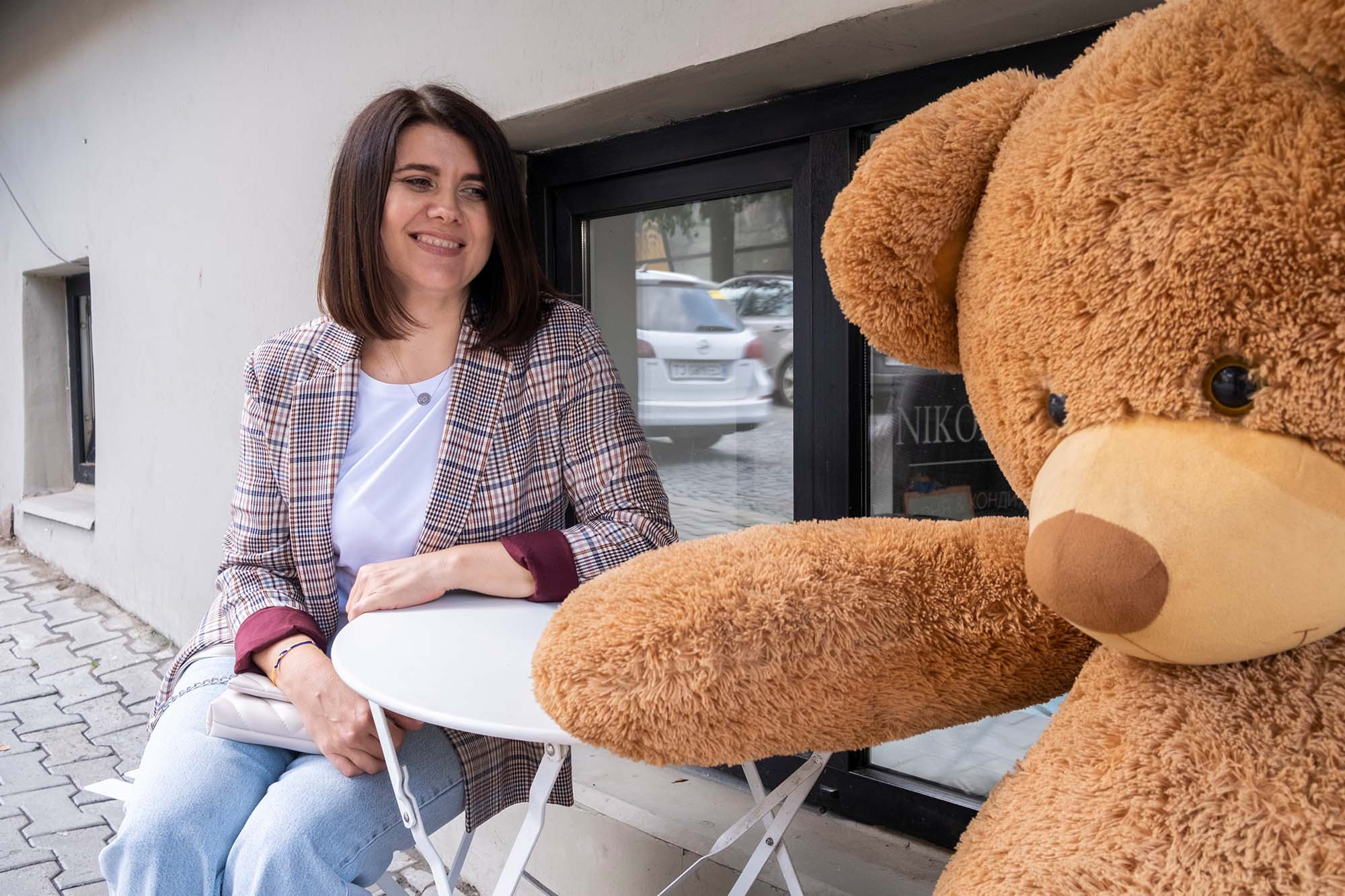
Recorded by Alyona Vorobiova
Translated by Volha Mikhnovich
Photographed by Ivan Pandikidis
